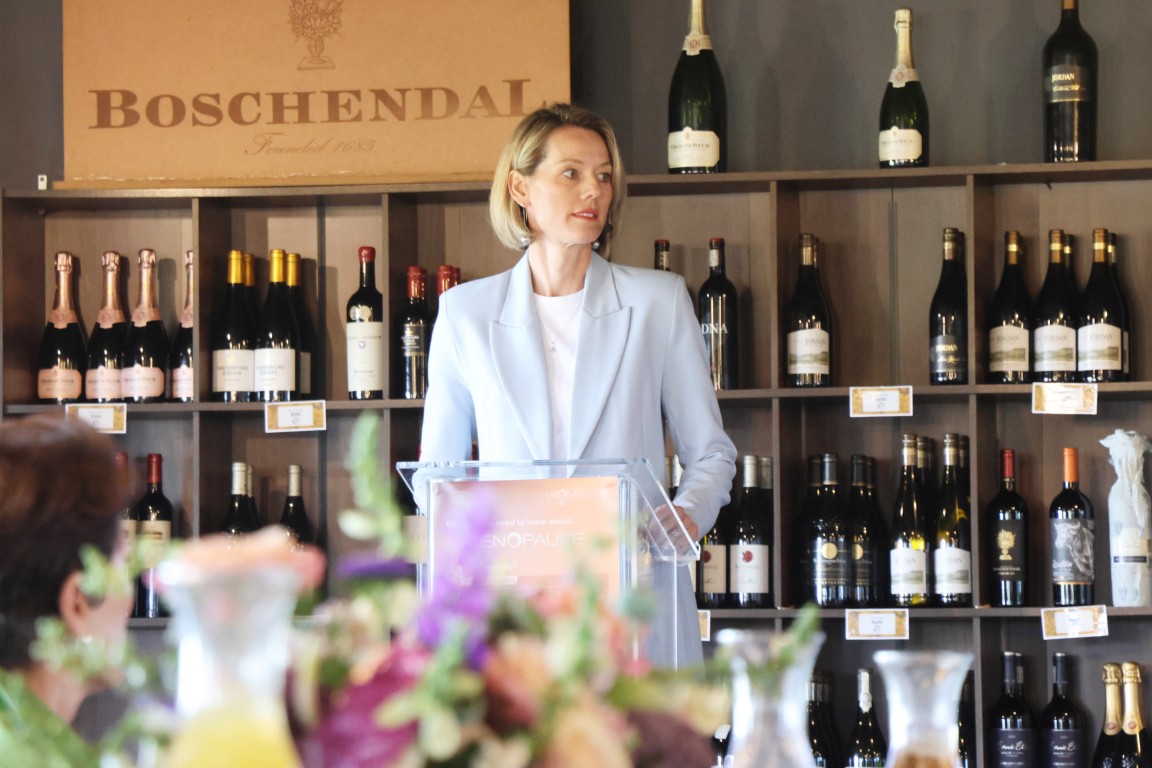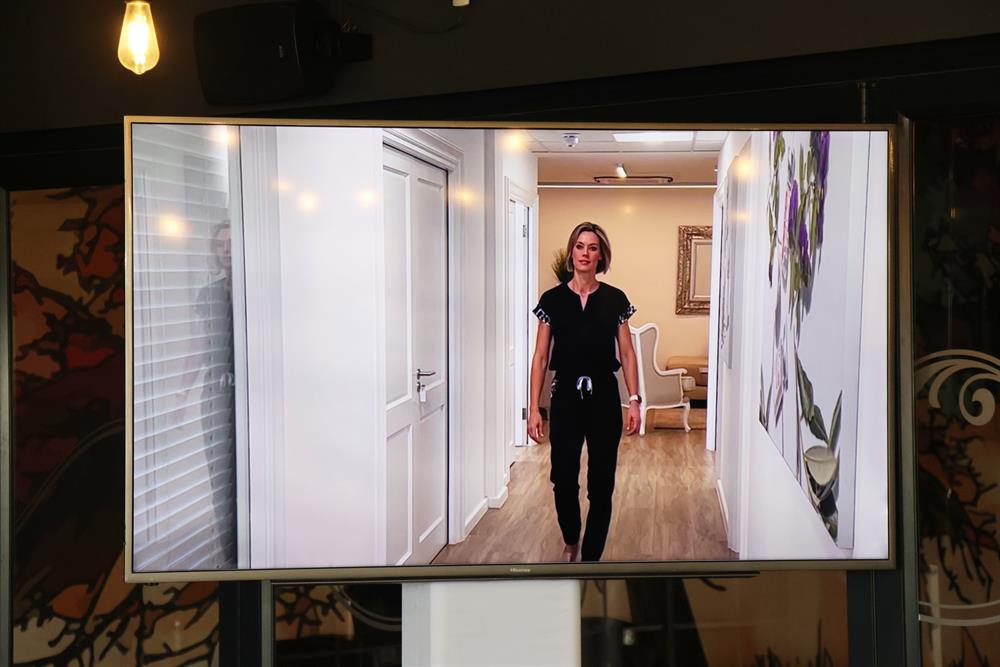Gallery
GEORGE NEWS - George Herald was recently invited to a talk by Dr Ledivia Strauss, a medical doctor with a special interest in functional, integrative and aesthetic medicine.
The event took place on 29 October as part of Bayer SA’s Menopause Awareness Month drive.
Menopause remains one of the most under-discussed health topics, with many women navigating symptoms in silence owing to stigma, misinformation and limited medical training on the subject. Recognising this gap, Bayer SA partnered with Strauss to bring menopause awareness to the forefront through the Let’s Talk Menopause campaign roadshows, a series of three engagements (Paarl, George and Pretoria) designed to educate, empower and normalise conversations about this important life stage.
By creating space for open dialogue and credible medical guidance, Bayer aims to help bridge the knowledge divide, ensuring women feel seen, informed and supported as they transition through menopause.

About Dr Ledivia Strauss
Strauss is a pioneer in her field, known for bringing new research to the forefront. With a strong academic background, her knowledge is rooted in science. She completed her MBChB at Stellenbosch University in 2004, followed by a postgraduate diploma in anaesthesiology in 2007. She later spent several years in France, where she earned a diploma in mesotherapy from the University of Bordeaux.
As the founder of RevitaHealth in Paarl, Strauss found her passion in helping women through science-backed methods to restore their health from the inside out by addressing the root causes of metabolic, hormonal and gut imbalances. She regularly gives talks and contributes to wellness articles aimed at empowering women to make informed, sustainable lifestyle changes.
Committed to lifelong learning, Strauss continues to attend international conferences and advanced training to stay up to date with the latest medical research. Outside of her practice, she enjoys French cooking, trail running and spending time with her family.

Key takeaways from the talk
• Understanding HRT and risk
The risks of hormone replacement therapy (HRT) depend on the type of hormones prescribed. Any risks are primarily linked to synthetic (chemically altered) hormones, not to natural or body-identical hormones.
Strauss referred to two studies:
- One found that hormone replacement does not increase the risk of blood clots.
- She is currently participating in another study at the University of the North West that examines the role of estrogen metabolites in the development of breast cancer.
Many women remain frustrated because doctors are often not informed about the latest research and continue to advise patients based on outdated studies.
• Changing perceptions of ageing and menopause
Strauss noted that people often fear ageing because of what they saw in their mothers and grandmothers. It was simply not something discussed. Her goal is to help them increase their health span to remain active, vibrant and engaged members of society well into their 80s and 90s.
The key, she explained, is to stay metabolically healthy. The following markers should all be within acceptable limits: glucose, LDL, HDL, blood pressure and waist circumference (less than 88cm).
• Hormonal balance and lifestyle
Women have around 85 hormones, all working together. The goal is to maintain control over glucose levels, insulin, dopamine and thyroid hormones, as all influence one another.
What we eat matters, and stress directly impacts cortisol levels. Community, belonging and physical contact also affect well-being by influencing oxytocin levels.
• Understanding the menstrual cycle
Many women are not well informed about their normal menstrual cycle. A typical cycle lasts between 26 and 35 days:
• Days 1-14: The body prepares to release an egg, and estrogen levels rise.
• Day 14: Ovulation occurs.
• Days 15-28: LH and progesterone increase, preparing the uterine lining for possible implantation.
If implantation does not occur, menstruation begins, and the lining is shed.
Progesterone is a calming hormone that supports sleep. Without it, anxiety, poor sleep and erratic bleeding can occur.
• Perimenopause and menopause
Some women enter perimenopause in their late 30s. Strauss emphasised that these symptoms should not be ignored and can be addressed through open discussion with a qualified and informed medical professional. Just because something is common does not mean it is normal.
Perimenopause is marked by erratic hormonal release - hormonal chaos, as Strauss calls it. Menopause, by definition, is one day: the day a woman has gone 12 consecutive months without a period. From that point on, she is post-menopausal for the rest of her life.
Most women enter menopause in their late 40s. Indicators include 12 months without a period, FSH levels above 40 and LH levels above 25.
Perimenopause, however, is more difficult to diagnose. Because hormones fluctuate erratically, testing is often unreliable and diagnosis is based on symptoms. Stress hormones and stimulants do not help, as cortisol increases glucose levels, contributing to weight gain. Combined with a sedentary lifestyle and poor diet, women can easily gain up to 5kg of fat and lose between 3kg and 5kg of muscle.
Stepping on the scale is not enough. It is about body fat composition and metabolic health. The body’s ‘metabolic storm’ can lead to metabolic disease, such as cardiovascular illness and type 2 diabetes.
Appropriate hormone replacement may help lower inflammatory markers and improve overall metabolic health.

In summary
• Address lifestyle first: eat healthy whole foods, move regularly, sleep enough, manage stress and detox.
• Sleep problems are often linked to low progesterone. Consider supplementation if appropriate.
• Office-bound? Start by doing 15 squats at your desk every hour.
• Absolute risk remains low: about 1 in 1 000.
• The major study linking HRT to breast cancer involved women aged 63 and older with multiple health issues, poor lifestyle habits and high smoking rates. This is not reflective of today’s healthier demographic.
Women in their 40s and 50s are generally healthier and more active than previous generations. Decisions about treatment should be based on facts, not fear. Hormones may not be for everyone, but bio-identical hormones, available as patches, creams or oral micronised progesterone, are worth discussing with a knowledgeable doctor.

Also read:
• https://www.drlouisenewson.co.uk/knowledge/hrt-and-breast-cancer-myths-and-facts
•https://www.researchgate.net/publication/221764129_Does_hormone_replacement_therapy_cause_breast_cancer_An_application_of_causal_principles_to_three_studies_Part_4_The_Million_Women_Study
• https://www.georgeherald.com/Search/Menopause%20is%20inevitable-%20suffering%20is%20optional
‘We bring you the latest Garden Route, Hessequa, Karoo news’




























